There are certain situations that make it a good idea to change or re-key a lock. For instance, when you move into a new home, when your roommate has moved out, after a divorce, when you have lost your keys, or when your keys and locks become worn or faulty. But, how do you determine whether it is better to replace the lock entirely or if it can be re-keyed?
To understand which is best, it’s important to understand what rekeying actually entails. Rekeying should only be done on locks that are in good working order already. Basically, the inside working mechanisms will be changed out to be new and require a new key, leaving the outside hardware in tact. This often means a huge cost savings as opposed to changing and replacing the entire locking system. Though, sometimes replacing the lock is the only or best option.
When you re-key a lock, the locksmith will remove the pins inside the lock and replace them with new pins that can be opened using a brand new key. This is a good option when you are sure that someone stole your keys or know that someone has access to your house at any time uninvited. The safe option is to re-key the lock when you are sure someone else has possession to your keys that unlock your door, and you do not trust this person.
The locksmith removes the pins and springs in the lock cylinder and replaces them with new pins and springs that work with a new and different key. Unless a lock is not functioning properly or a completely new style of lock is wanted by the home owner, several locks are able to be rekeyed and kept in working condition for a long time. Some even claim their rekeyed lock operates even better than ever.
To get technical, the locksmith will remove the pins and springs inside the lock cylinder and replace them with new ones leaving the outside hardware, door knobs and such, in tact. A qualified, experienced locksmith will be able to quickly determine whether or not a rekeying or a lock replacement is your best choice.
Control The Spares
The most common reason to re-key a lock is to regain control of the spares. Simply put, gaining control of the spares merely means accounting for all of the keys that have been duplicated and made to operate the locks. Once you give a key to a friend or family member, the key control is lost. Rekeying also gives you brand new spare keys that you can control as to who has access to your locks. You not only have the peace of mind knowing no one else has a duplicate key, but you now have fresh spare keys that you can tuck away in a secure place only you know about or give to someone you know you can trust so that you can easily and quickly access it if you ever lose your keys again.
Sometimes, in an apartment complex or condominium, keys are created on a master key system. This means, the landlord has ultimate control over who has what keys. But, even in these scenarios, a key could get in the wrong hands. Plus, you always know that the landlord has a key to enter your premises at any time. Though, whenever you change locks out or re-key them in a leased property, you will probably need to obtain landlord consent first.
However, the master key concept is still at play in many single-build communities. The locks are often construction master keyed. This means that while the use of your key may prevent the future use of a contractor’s key, there are often master pins left in the lock. Each master pin is going to double the number of keys that will operate the lock. Often, there are as many as 16 different keys that could open a single home’s locks. Rekeying eliminates the potential of another key opening the lock since rekeying removes these master pins.
Problem With The Locks
Before you lose your keys, you may not have noticed any issues with the locks they once opened. During the rekeying process, the experienced locksmith will identify any other problems that the lock may have and will often be able to fix these issues. This is all done as part of the rekeying process and is nothing you probably would have ever noticed. When the rekeying is done, your lock will be left in a much safer and efficient functioning condition.
When Should You Replace and Change The Locks Entirely
Rekeying is not always the best solution. Sometimes, under certain scenarios, it is better to just go ahead and change out the entire locking system by replacing the lock instead of the more budget-friendly alternative of rekeying. One case that would warrant a lock replacement is when the lock hardware is worn out or beginning to show a great deal of wear and tear and cannot be repaired. In this case, you will need to find a trustworthy locksmith to install a new lock for you.
Another reason you might choose to replace your lock instead of merely rekeying it is when you need to upgrade your security. Do this by upgrading the lock. You might even decide you want an electronic lock. Either situation will mean that the existing locks will need to be completely changed out and replaced rather than rekeying them.
Some lock manufactures offer a lock that the consumer can re-key themselves. These locks are not the standard pin tumbler locks. To allow rekeying of these locks without fully disassembling them entails working with a lot of extra intricate parts that are easier to bypass than traditional locks and can lead to malfunction.
When you need your locks rekeyed or changed out and replaced, be sure to consult a reliable locksmith nearby who will know the best option for you to pursue and will be able to give you a price quote for the hardware and labor. While rekeying is usually the most cost-effective option in terms of saving money, you may have no other choice but to improve your security measures by replacing the entire lock. While the latter choice may be pricey upfront, it will be well worth it in the end.

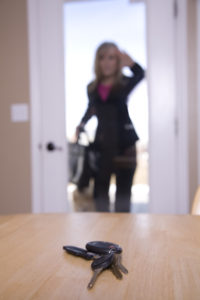 Residential Home Lockout Scenario
Residential Home Lockout Scenario  When you are locked out of your car or home, broken a key off in the ignition, lost your keys, need a re-keying service, or are stranded roadside, or need transponder keys programmed or car keys made on the spot, we come to you in and around the Colorado Springs area. We take the panic out of emergencies. Lock and key emergencies require the services of someone who can work on the lock, which means that even if it’s not an emergency situation, it would be very awkward and inconvenient to dismantle a door with a lock intact or get the vehicle to another location for service. That’s why mobile locksmiths come to you to provide the service you need right there on the spot.
When you are locked out of your car or home, broken a key off in the ignition, lost your keys, need a re-keying service, or are stranded roadside, or need transponder keys programmed or car keys made on the spot, we come to you in and around the Colorado Springs area. We take the panic out of emergencies. Lock and key emergencies require the services of someone who can work on the lock, which means that even if it’s not an emergency situation, it would be very awkward and inconvenient to dismantle a door with a lock intact or get the vehicle to another location for service. That’s why mobile locksmiths come to you to provide the service you need right there on the spot.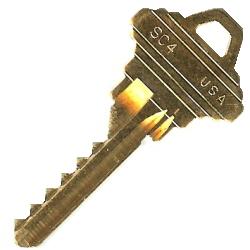 Bump keys work with pin tumbler locks, so to understand exactly how a bump key works, you must first understand how a pin tumbler lock functions. Pin tumbler locks are made up of:
Bump keys work with pin tumbler locks, so to understand exactly how a bump key works, you must first understand how a pin tumbler lock functions. Pin tumbler locks are made up of: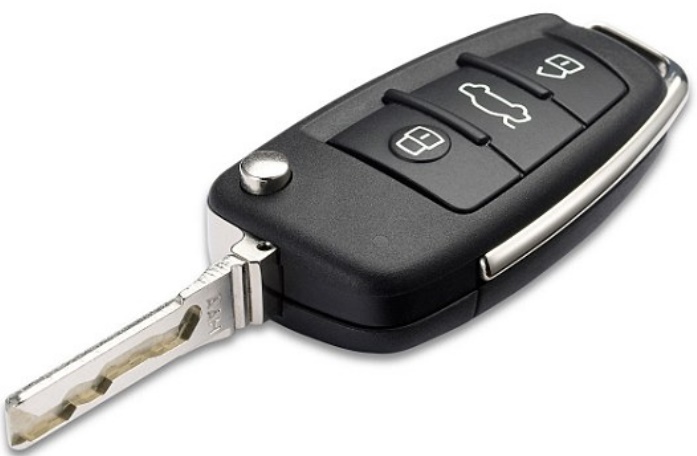 When laser cutting was introduced, it was intended to provide an extra measure of security in duplicating car key. A laser cut key is sometimes called a sidewinder key or an internal cut. The way this style of key offers additional security is that they have lock cylinders that are more difficult to pick than the traditional metal cut keys. This extra security step also makes it more difficult to duplicate and copy the key because of the process of the designed using complex technology and specialized software on the laser-cutting machines.
When laser cutting was introduced, it was intended to provide an extra measure of security in duplicating car key. A laser cut key is sometimes called a sidewinder key or an internal cut. The way this style of key offers additional security is that they have lock cylinders that are more difficult to pick than the traditional metal cut keys. This extra security step also makes it more difficult to duplicate and copy the key because of the process of the designed using complex technology and specialized software on the laser-cutting machines.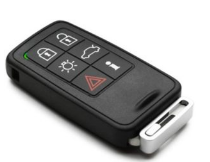 Transponder Keys
Transponder Keys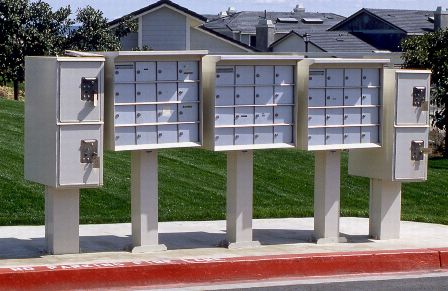 You receive your mail in your box, but your box is located or attached to a group of other mailboxes held by your neighbors. Because your mailbox is one individual box among several, each box has its own lock and key so that each owner of the mailbox may have access to their own individual mailbox for retrieving personal mail.
You receive your mail in your box, but your box is located or attached to a group of other mailboxes held by your neighbors. Because your mailbox is one individual box among several, each box has its own lock and key so that each owner of the mailbox may have access to their own individual mailbox for retrieving personal mail.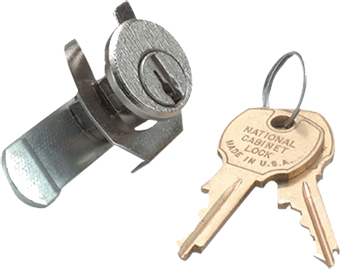 Cluster boxes that are designed for a community mailbox system are often located outside. These boxes sit all day in the weather elements, and it’s not just rain that causes damage. Sunshine, excessive heat, cold, and snow cause damage as well. Ice often gets inside the locking components and freezes them which weathers them even more. Locks start to rust and show wear. Dust gets inside, and locking mechanisms gum up and stop working properly. When the lock malfunctions or breaks, it’s time to get the mailbox lock changed to make sure they work properly when you need to gain access to your mail.
Cluster boxes that are designed for a community mailbox system are often located outside. These boxes sit all day in the weather elements, and it’s not just rain that causes damage. Sunshine, excessive heat, cold, and snow cause damage as well. Ice often gets inside the locking components and freezes them which weathers them even more. Locks start to rust and show wear. Dust gets inside, and locking mechanisms gum up and stop working properly. When the lock malfunctions or breaks, it’s time to get the mailbox lock changed to make sure they work properly when you need to gain access to your mail. knowledgeable to answer any questions you might have about locks and key issues. As soon as you call, we will show up within a half hour ready to help.
knowledgeable to answer any questions you might have about locks and key issues. As soon as you call, we will show up within a half hour ready to help.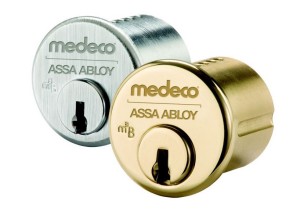 The outdoor entrances of the building can be fixed with a variety of deadbolt or different type of commercial locks. The type of security needed will determine whether you should use heavy duty or standard commercial locks construction. A standard commercial deadbolt works nicely for office buildings. However, heavy duty commercial deadbolts will provide you with the utmost security. You should look for a
The outdoor entrances of the building can be fixed with a variety of deadbolt or different type of commercial locks. The type of security needed will determine whether you should use heavy duty or standard commercial locks construction. A standard commercial deadbolt works nicely for office buildings. However, heavy duty commercial deadbolts will provide you with the utmost security. You should look for a 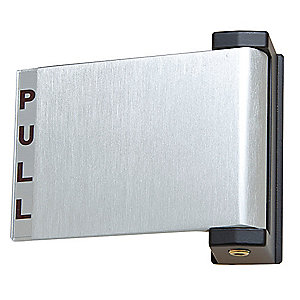 One of the best choices for exterior doors of hotels, offices and light-duty commercial buildings are interconnected locks. These locks are referred to as interconnected because the disabled compliant handles unlatch both the deadbolt and the handset when it is depressed. A good interconnected lock will come with a reinforced deadbolt strike in order to not to allow any intruder to kick the door open from outside.
One of the best choices for exterior doors of hotels, offices and light-duty commercial buildings are interconnected locks. These locks are referred to as interconnected because the disabled compliant handles unlatch both the deadbolt and the handset when it is depressed. A good interconnected lock will come with a reinforced deadbolt strike in order to not to allow any intruder to kick the door open from outside.